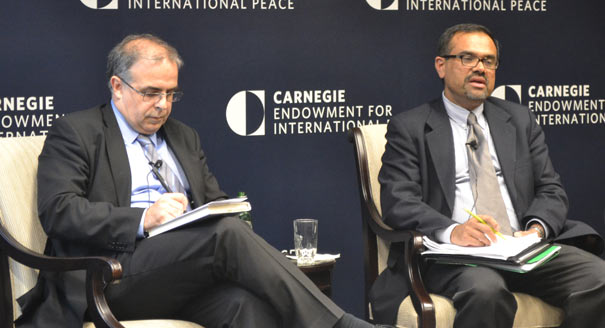Registration
You will receive an email confirming your registration.
South Asia faces an array of security challenges. The ongoing U.S. withdrawal from Afghanistan, the continuing violence in Pakistan, and the region’s intense militarization are creating a heightened sense of instability and unease among South Asian states. The Pakistan-India and China-India rivalries compound this mix, leaving South Asia in a precarious position and increasingly prone to crises.
Author T.V. Paul explored three areas that he sees as sources of enduring peace—democracy, institutions, and interdependence. He also analyzed what regional actors, the United States, and China can do to help South Asian states transition from their rivalrous past to a more stable future. Carnegie’s Frederic Grare moderated.
T.V. Paul
T.V. Paul is the James McGill professor of international relations in the Department of Political Science at McGill University in Montreal. Paul is the author or editor of fifteen books and over 55 scholarly articles and book chapters in the fields of international relations, international security, and South Asia. He most recently authored The Warrior State: Pakistan in the Contemporary World (Oxford, 2014).
Frederic Grare
Frederic Grare is senior associate and director of Carnegie’s South Asia Program. He works on India’s Look East policy, on Afghanistan and Pakistan’s regional policies, and on the tension between stability and democratization, including civil-military relations, in Pakistan.
